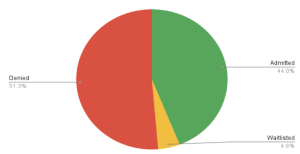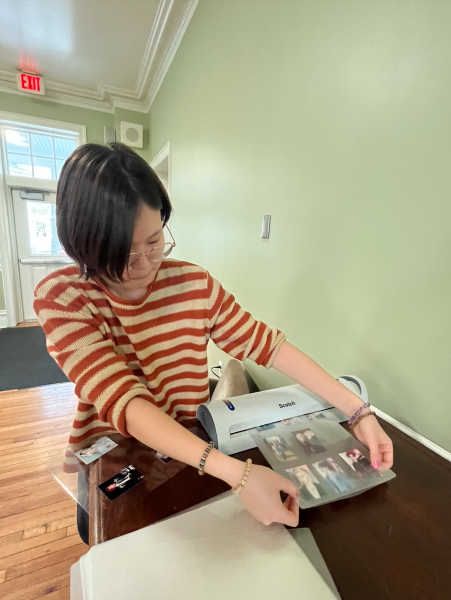How to Become a Changemaker in Ten Weeks
March 2, 2020
“What happens when people open their hearts?”
“They get better.”
~ Norwegian Wood, Haruki Murakami
Throughout this past winter term, fifteen students in Professor Christine Henseler’s Social Change for Education class have been meeting in an open-concept workstation on Jay Street. They are first-years, sophomores, juniors and seniors. They love sports, art and music. Their diversity has made this class experience a unique one; it has led to the amalgamation of different perspectives in discussions, creating the ideal environment for creativity, teamwork and vulnerability. They are all incredibly different, but one goal unites them.
Their goal is to write a book about the educational system – or perhaps more specifically, about the ways in which it has challenged them – and to posit solutions for a better future. One that seeks to bring out the best in each individual, maximizing their potential and setting them up for successful careers and lives. The students were free to write on whatever topics felt nearest to their hearts. Thus, each classmate wrote a chapter about an educational facet that is deeply personal to them.
One of the students, a perfectionist, came to learn that failure “opens the door to vulnerability … and allows you to grow.” Growth is special; it is often not expected, spontaneously arising in different contexts for different people. Some of the students wrote about their difficulties with the systems in place for learning disabilities, exploring how institutions might be improved to better fit students (instead of the opposite). Others discussed the importance of emotional wellbeing as it relates to education, and how one might best overcome anxiety as it relates to subjects they may not naturally gravitate towards. Still others wrote on the subject of conformity in education, and how one size does not “fit all.”
Well-versed in the topics that each of them wrote about, many of them believed that their knowledge would remain steadfast. However, the class experience proved to be transformative. In the words of one student, the classwork and activities have “open[ed] the door to discover things in topics that [we] did not know before.” As their research progressed, some students learned more about the plight of other individuals. In doing so, they admitted they have become “increasingly aware of how lucky [they] are.” One student studying mental health prevalence had “never realized the severity of the issue [until now].”
Classmates spent a significant amount of time sharing their vulnerabilities with one another, often to those whom they had previously considered strangers. Leaning on each other for support and advice, the students in Social Change for Education have developed the courage to be vulnerable. They have laughed together, learned together, and sought to empower one another through writing.
Walking away from this class, they know that they have written an indelible chapter in the story of education, inspiring others to continue to make a positive change.




